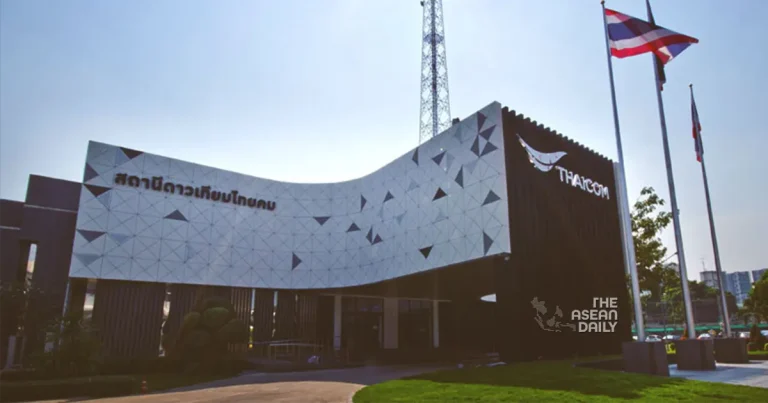13-3-2024 (BANGKOK) Thailand is on the verge of losing its right to utilise the satellite orbit positioned at 50.5° East, which has remained vacant for an extended period and is set to expire in 2025. This risk emerges amidst speculation that the planned auctions for two unsold orbit slots, situated at 50.5° and 142° E, by the National Broadcasting and Telecommunications Commission (NBTC) might face failure due to anticipated low bidder turnout.
An inside source at the NBTC, speaking on condition of anonymity, revealed that Thailand’s entitlement to use the 50.5° E orbit slot will terminate next year, following a specific extension period granted by the International Telecommunication Union (ITU). Meanwhile, the right to use the 142° E slot is set to expire in three years.
The NBTC is gearing up to allocate both orbital slots this June, following their unsuccessful sale during the previous auction in January 2023. Last year, the regulator conducted Thailand’s inaugural auction for satellite orbit slots, offering five packages. Among these, Space Tech Innovation, a subsidiary of Thaicom listed on the Stock Exchange of Thailand (SET), secured the second and third packages, while the fourth package was won by the state telecom enterprise, National Telecom (NT). However, the first and fifth packages remained unsold.
In light of the impending expiry and to avert potential cancellations by the ITU, the NBTC board and management are formulating a fresh plan to award the unsold slots. The source indicated that the draft proposes alternative methods for awarding the slots, including a beauty contest, a revenue-sharing basis, and direct awarding.
A public hearing for the draft proposal is expected to be announced in the Royal Gazette shortly. The beauty contest method primarily evaluates the readiness and qualifications of prospective bidders based on their proposals and the benefits proposed to the state. Under this method, bidders may only need to pay the reserve price as a minimum payment to the state.
On the other hand, the revenue-sharing basis will determine the exact rate that rights holders must pay to the state. Meanwhile, the direct awarding method will establish specific conditions for awarding the rights to particular companies.
Despite these options, the source suggested that the NBTC board is leaning towards opting for the auction method, which would entail setting a low reserve price for winning bidders. Alternatively, winning bidders might be required to engage in revenue sharing with the state.
However, there are concerns about bidder turnout, as the draft stipulates that the bidding process must involve at least two participants, or else the auction will be nullified.
In response to these developments, Prasert Jantararuangthong, the Minister of Digital Economy and Society, stated that the ministry would engage with relevant agencies to discuss the distribution of rights for the two unsold orbits. While acknowledging the challenges posed by the distant coverage positions of these orbits, situated in the Caribbean Sea and the Middle East, Mr. Prasert affirmed that the NBTC retains the authority and responsibility for awarding the rights.
Meanwhile, NT is unlikely to participate in bidding for the two slots, given its ongoing turnaround plan and its yet-to-be-utilised 126° E orbit slot secured in the previous auction, Mr. Prasert concluded.




